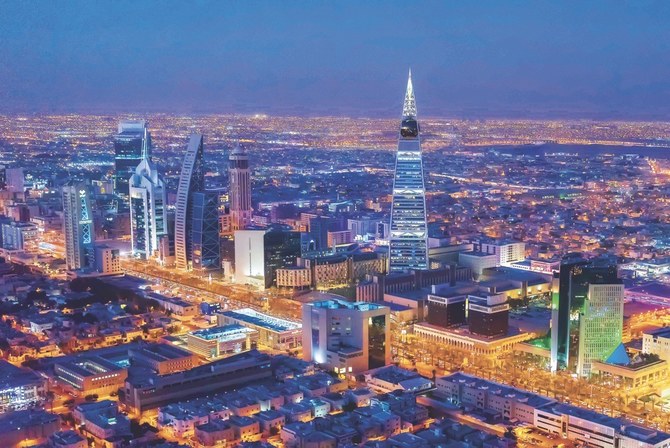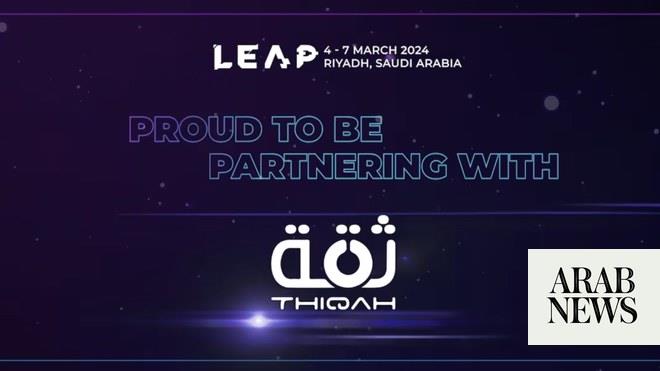
RIYADH: In this time of intense and accelerating global change, factors such as the climate, the world economy, government policies, and new technologies are fundamentally altering the ways in which human beings live, think, collaborate and do business.
The inaugural Future of Education, Science and Culture International Organizations Forum, or FESCIOF, which brings together global organizations at Riyadh’s King Abdullah Petroleum Studies and Research Center on March 8 and 9 under the theme “Together for impact in the 21st century,” aims to establish a shared vision for this process of change and to identify opportunities for cooperation.
The event “establishes a broad international cooperation platform that will strengthen relations between international and multilateral organizations in various fields of influence,” Hani Al-Mogbil, chairman of the executive council of the Arab League Educational, Cultural and Scientific Organization, told Arab News.
His organization is one of the organizers of the forum, along with the Saudi National Commission for Education, Culture and Science; the Islamic World Educational, Scientific and Cultural Organization; and UNESCO.
“The unprecedented broad participation in the conference’s activities will contribute to the development of joint initiatives that have a tangible impact in shaping a promising future for the sectors of education, culture and science,” Al-Mogbil said.
“Cooperation between active parties will also contribute to identifying new paths that enhance impact and enable finding solutions, in light of the recent changes taking place in the sectors of education, culture and science, and the accompanying challenges such as lack of funding and changing geopolitical conditions.”
Those involved in the forum include UNESCO and the Arab League. (Supplied)
It will “take advantage of future opportunities to develop the work of international organizations,” he added.
According to the organizers of the forum, international and multilateral organizations must constantly evolve to deliver on complex mandates in times of economic, social and political change, which means dialogue and cooperation are all the more important.
Progress in technology provides an unprecedented opportunity for organizations involved in the fields of education, science and culture to connect on issues of best practice and to collaborate more closely within the wider ecosystem, increasing their effects on economic progress and the overall quality of life for all.
While many multilateral organizations have contributed greatly to progress, peace and the improvement of living standards all over the world since their inception, forum organizers said there are opportunities to expand member support, increase access to funding, and to adapt to a changing geopolitical landscape.
The forum is an opportunity for Saudi Arabia to expand its involvement with multilateral organizations, including those involved in staging the event. The Kingdom was a founding member of UNESCO in 1946 and has been a member of its Islamic world equivalent since 1982.
The equivalent organization that works under the umbrella of the Arab League to develop and coordinate activities related to education, culture and science, is based in Tunis. Established by Article 3 of the Arab Cultural Unity Charter and was launched in Cairo on July 25, 1970. In December 2022, Prince Badr bin Abdullah, the Saudi minister of culture, and Mohammed Ould Amar, the organization’s director general, signed a memorandum of understanding for the enhancement of cultural cooperation, including the protection of UNESCO-listed World Heritage sites.
Al-Mogbil said this week’s forum is significant because it represents the first-ever collective dialogue between its organizers.
“It will provide opportunities for fruitful and sustainable partnerships between all parties to the modern system and contribute to linking the current system to a larger system with its active parties,” he said.
About 100 organizations are to take part in the forum at King Abdullah Petroleum Studies and Research Center. (Supplied)
Through the forum, the organizers hope to build a globally trusted and recognized, collaborative, multi-partner platform that will begin the conversation and develop an early-stage road map that sets milestones to consolidate the efforts of international organizations across the ecosystem and seize future opportunities.
Such a platform, they said, will connect the legacy ecosystem with new players, encourage communication through open channels and enable dialogue among all key stakeholders, identify new paths for cooperation that can strengthen the effects, and enable solutions through new partnerships, while committing to an ongoing mechanism for sustainable partnerships resulting from the forum.
The event brings together about 100 multilateral organizations and more than 65 prominent speakers, including high-level representatives from the UN Development Program, the UNESCO Institute for Statistics, and the Tony Blair Institute for Global Change.
It has also attracted experts in business management from prestigious academic institutions including the Harvard Business School, the London Business School and the Brookings Institution, as well as representatives from the private sector and banking industry, including Google, the World Bank, Visa, and the Islamic Development Bank.
Eminent speakers include Renee Mauborgne, professor of strategy at the INSEAD business school in France and co-author of global bestsellers “Blue Ocean Strategy” and “Blue Ocean Shift;” Frederic Laloux, author of one the most influential management books of the last decade, “Reinventing Organizations;” and Costanza Farina, UNESCO’s representative to Lebanon and Syria.
The forum’s four sub-themes are “Re-imaging the future of international organizations,” “Driving a future-forward ecosystem,” “Enabling investment and knowledge sharing,” and “Empowering mutual opportunities for collaboration.”
Under the theme of designing the future of international organizations, the forum will explore internal and external challenges and opportunities faced by multilateral bodies, such as the changing landscape for international development and humanitarian aid.
On the issue of a future-forward ecosystem, participants will discuss ways to build agility and digital capacity in multilateral programs and explore how to leverage new communication channels, while taking into account environmental factors.
Hani Al-Mogbil. (Supplied)
In terms of enabling investment and knowledge sharing, the forum will discuss ways to capitalize on new solutions, including public-private partnerships, while sessions on empowering mutual opportunities for collaboration will examine the role of new players in enabling future solutions.
Organizers said the forum aims to provide opportunities for dialogue between a broad range of specialists from nongovernmental and financial organizations, with the goal of fostering greater effects through collaboration between international organizations.
Sessions will focus on topics that include: Identifying new ways to measure progress in efforts to achieve the UN Sustainable Development Goals; youth and inclusion in the sectors of education, science, technology and culture; enhancing digital connectivity; the future of digital; innovation in international organizations; and investment and financial solutions.
Additionally, there will be discussions of successful case studies on digital capacity building in international organizations, as well as workshops and breakout sessions during which participants can find practical tools and resources to apply to their own work.
The forum is one of several major events hosted in Riyadh in recent months, which have included the second edition of the LEAP tech conference, and the International Conference and Exhibition for Science.
These events, and others, have brought together key decision makers, specialists, non-governmental organizations, and the private sector with the aim of fostering cooperation, innovation, sustainability and cross-cultural dialogue across key global sectors.








